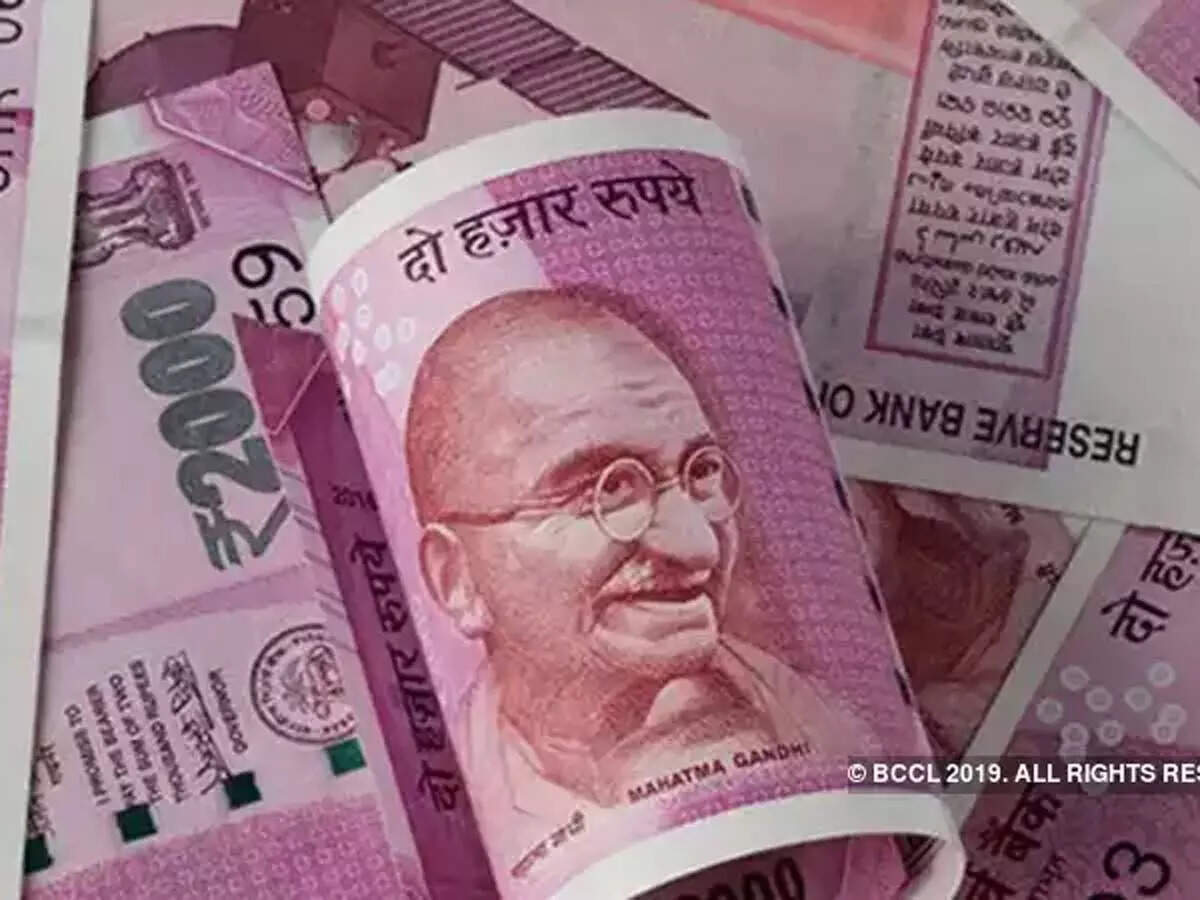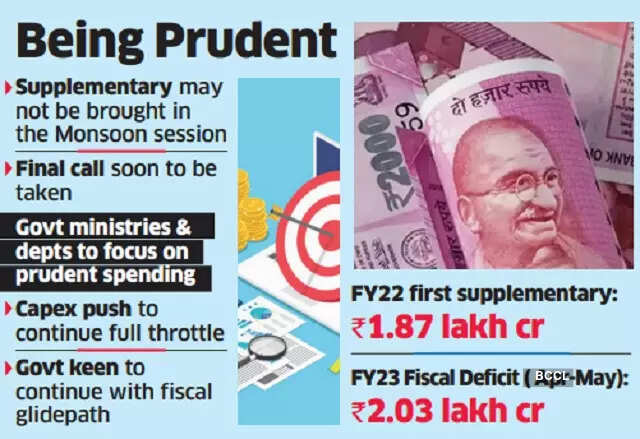
The government may not present a supplementary demand for grants in the upcoming monsoon session of Parliament, signalling to ministries and departments the need for fiscal prudence and better use of allocations amid concerns over the fiscal deficit. The emphasis is on prudent management of already allocated budgetary resources and a final call will be taken shortly, officials told ET.
“The objective is to get departments to exercise utmost prudence in spending money already with them,” said a ministry official, who did not wish to be identified. “There is stress on fiscal management during tough times.”
A full-fledged review of the fiscal situation will be done after the first half of the current fiscal, but the government will continue with the capital expenditure push. Some non-priority spending may be rationalised, said officials.

In 2021-22, the government had presented a ₹1.87 lakh crore first supplementary demand for grants on July 20, proposing a net cash outlay of ₹23,675 crore. In the fiscal, the government exceeded the budgeted fiscal deficit target by about ₹80,000 crore. It had raised the target to 6.9% of GDP from 6.8% pegged in the budget, but actual came in at 6.7% of GDP on back of improved revenues.
In the current year, the Centre is facing fiscal pressures due to higher spending on fertiliser and food subsidies, and loss of revenue due to tax cuts to douse inflation.
The fiscal deficit for April-May, the first two months of this fiscal, came in at Rs 2.03 lakh crore, or 12.3% of the 2022-23 budget estimates on account of higher expenditure, official data showed. A year ago, the fiscal deficit was 8.2% of the full-year estimate.
The fiscal deficit target for 2022-23 is pegged at 6.4% of the GDP.
In its monthly economic report for May, the finance ministry warned that an increase in fiscal deficit may cause the current account deficit to widen.
The ‘windfall tax’ on domestic crude and export tax on petrol, diesel, and aviation fuel will lift revenues, but the government wants to keep a check on spending as any fiscal slippage will give wind to the worrying current account deficit.
Additionally, with the RBI tightening monetary policy to check inflation, the government, too, needs to pitch in with a tighter fiscal policy, said officials.
In a report last week, Kotak Institutional Equities pegged the fiscal deficit at 6.5% of GDP after factoring in the gains from taxes on fuels and crude oil.